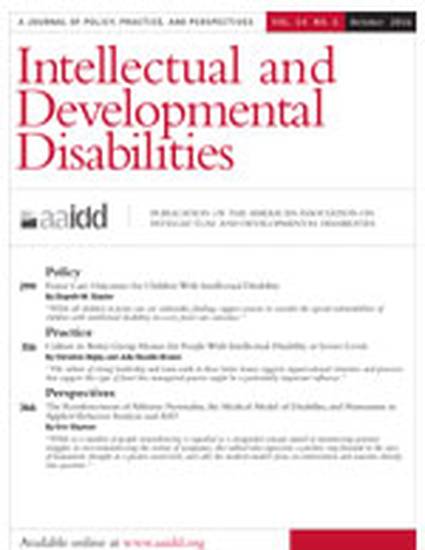
Article
Foster Care Outcomes for Children With Intellectual Disability
Intellectual and Developmental Disabilities
(2016)
Abstract
The promotion of speedy, permanent outcomes for foster children is a central child welfare policy goal. However, while children with intellectual disability (ID) are at greater risk for child welfare involvement, little is known about their case outcomes. This cross-sectional national study explores between-group foster care outcomes. Foster children with intellectual disability were more likely to have experienced an adoption disruption or dissolution but less likely to be reunified with a parent, primary caretaker or other family member. Implications for interagency collaboration in support of pre and post-foster care discharge support services are discussed.
Keywords
- Foster Care,
- Child Welfare,
- Intellectual Disability,
- Outcomes,
- Interagency Collaboration
Disciplines
Publication Date
October, 2016
DOI
10.1352/1934-9556-54.5.299
Citation Information
Elspeth M. Slayter. "Foster Care Outcomes for Children With Intellectual Disability" Intellectual and Developmental Disabilities Vol. 54 Iss. 5 (2016) p. 299 - 315 Available at: http://works.bepress.com/elspeth-slayter/1/
